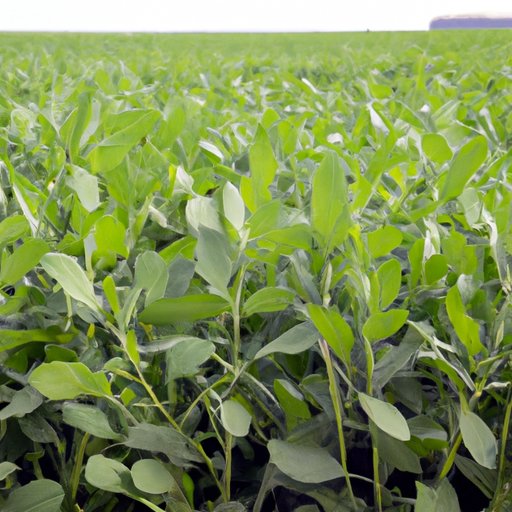
Introduction
Yara is a company that plays a significant role in the agricultural industry. Fuelled by a mission to create sustainable solutions for growing crops, Yara’s products and services are essential to farmers everywhere. This article provides a comprehensive overview of Yara’s business operations, analyzing the company’s impact on global agriculture.
Overview of Yara’s Business Operations
Founded in Norway in 1905, Yara is a world leader in producing crop nutrients and providing farm animal nutrition. Yara’s primary products include ammonia, nitric acid, and compound fertilizers. The company is highly regarded for its innovation, commitment to sustainability, and technological expertise.
Yara’s products are used in over 160 countries worldwide, servicing farmers and crop growers of all types and sizes. Yara’s experts provide crop nutrition solutions, technical support, and precision farming services to their customers, ensuring that they have access to the tools and resources needed for robust and healthy crop growth.
Yara’s Impact on the Agricultural Industry
Yara’s sustainable agriculture practices are noteworthy. By focusing on precision farming, Yara has developed innovative technologies aimed at improving agricultural efficiency and productivity while minimizing environmental impact. Yara’s scientific approach to crop nutrition has resulted in a portfolio of innovative products that support high yields and overall plant health.
Yara’s commitment to sustainability is notable. They aim to reduce greenhouse gas emissions by 30% by 2030. Furthermore, they are working towards achieving a complete CO2-neutral industrial footprint by 2050. By collaborating with local communities and organizations, Yara is seeing great results in areas that need support.
Yara’s impact on the agricultural industry resulting from their innovations is striking. They have promoted precision agriculture and smart farming solutions, ensuring that the right nutrients are given to the crop at the right time. The result is productive, nutritious crops, which are healthier for the consumer and profitable for the farmer.
Yara’s Executive and Leadership Teams
Yara’s key players have a wealth of experience in the agricultural industry, and their talents have helped shape Yara’s business operations. At the helm of Yara is Svein Tore Holsether, who has been CEO since 2015. He has led the overhaul of the company’s business model to focus on operational efficiency, productivity, and sustainability.
Jorge Alberto Levi is the Chief Financial Officer (CFO) of Yara, and his experience in the finance industry is a valuable asset. Meanwhile, Tove Andersen is the company’s Chief Legal Officer (CLO), overseeing legal and corporate compliance issues.
These individuals are examples of the impressive work done by Yara’s executive and leadership teams, contributing to the company’s high level of potential
Yara’s International Presence
One of Yara’s strengths is its global reach. With over 16,000 employees, Yara operates in over 160 countries worldwide. The company has formed strategic partnerships and collaborations with organizations, governments, and other agribusinesses around the world.
Yara has an influence on global agriculture. Through partnerships with organizations like Greenpeace and the World Wildlife Fund (WWF), Yara ensures that their sustainable practices prioritize the climate and achieve sustainable development goals. Additionally, the company operates research labs and production facilities in strategic locations globally. In turn, this enhances its ability to cater to the specific nutrient requirements of crops in various parts of the world.
Yara’s Growth Strategy
Yara’s mergers and acquisitions (M&A) strategy has helped the company expand its operations and enter new markets. Among the high-profile M&A deals are Yara’s 2018 acquisition of Tata Chemicals’ urea business in India and their acquisition of the German company, H+H. Aside from mergers and acquisitions, Yara
is investing heavily in emerging markets. The company seeks to create strategic alliances with farmers globally to promote their expertise in sustainable crop growth while offering new technologies and knowledge-sharing opportunities.
Yara’s Research and Development Efforts
Yara’s research and development department is the engine behind its innovative solutions aimed at crop nutrition and sustainability. The department works closely with customers, research organizations, and academia to address modern-day challenges facing the agricultural industry.
Yara’s notable contributions to research and development include its collaboration with IBM, which led to the development of the digital farming tool “The Yara Imaging System” that only 3 years ago started gaining popularity. The tool connects farmers with researchers and industry professionals to aid decision-making, optimize crop yields, and reduce the negative impacts of crop industry demands.
Conclusion
Yara, with its role in global agriculture, has become an essential player in driving sustainable food growth. They are pioneering the way for precision farming, innovative technologies, and remarkable efficiency, leading the industry toward a more sustainable future.
Through their extensive contribution to research and development, strategic mergers and alliances, sustainability initiatives, and innovation, the company has established itself as a major player in the agricultural industry, and that role will only continue to grow.
For readers interested in learning more about Yara’s commitment to sustainable agriculture, we recommend visiting their website to explore the full range of products and services offered by the company.





